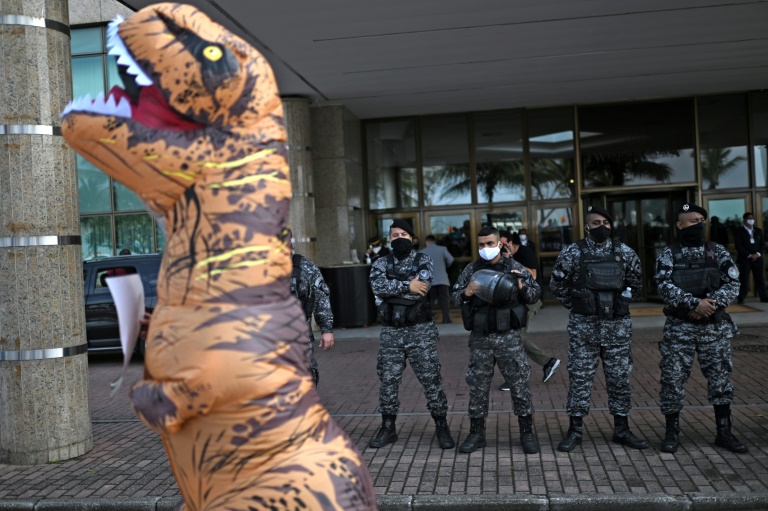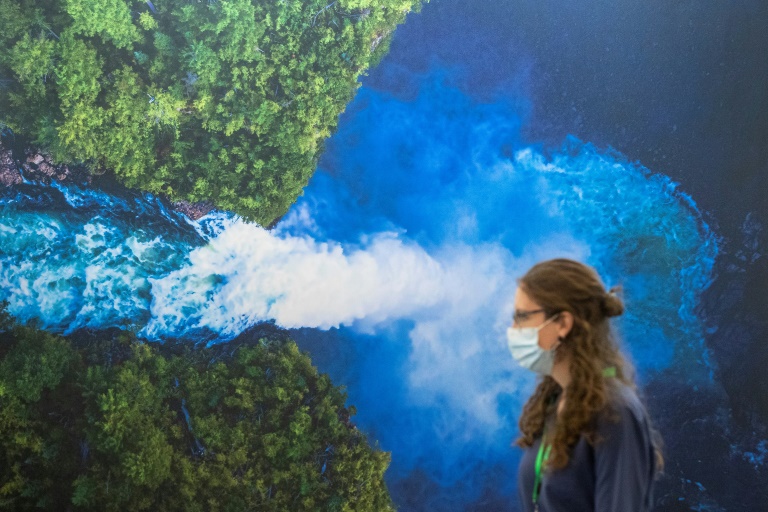Brazil’s oil auction ended in disappointment on Thursday, with the government selling offshore drilling rights in only five out of 92 blocks on offer.
The dismal results reflected the weakened state of the oil industry during the Covid-19 pandemic as well as environmental concerns, according to experts.
The auction brought in just 37.14 million reais ($6.7 million) compared to the $2 billion raised at the previous auction held in October 2019, before the pandemic started.
Crucially, in a win for environmental activists, no offers were made for the blocks in the northeastern Potiguar Bay, which is close to the Fernando de Noronha and Rocas Atoll archipelagos, the former a UNESCO World Heritage site and the latter a biological reserve.
Around 50 protesters demonstrated in front of a hotel in Rio de Janeiro where the auction took place, notably against the projects’ risks to traditional fishing.
One demonstrator carried an iconic AFP photograph of an oil-stained Brazilian boy following an oil spill off the coast of northeast Brazil in 2019.
All the five blocks were bought by Royal Dutch Shell. They are located in the southeastern Santos Bay, close to the oil-rich pre-salt layer on Brazil’s coast.
Brazil’s state oil company Petrobras, usually very active at auctions, made no bids.
Rodolfo Saboia, the director of the National Oil Agency, which organized the auction, insisted the result was “positive” given how hard the industry has been hit by the coronavirus pandemic.
“We cannot call it a failure, we couldn’t expect all the blocks to find a buyer,” he said.
But Fernanda Delgado, a researcher at the Getulio Vargas Foundation, told AFP that “everyone expected there to be interest in more areas.”
The lack of bids was because companies “did not want to take the political risk or environmental risk,” Delgado added.










